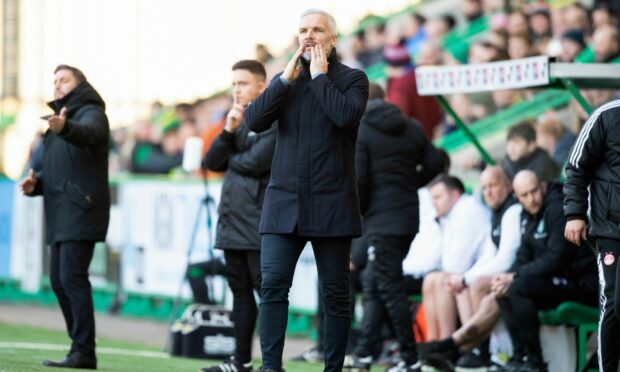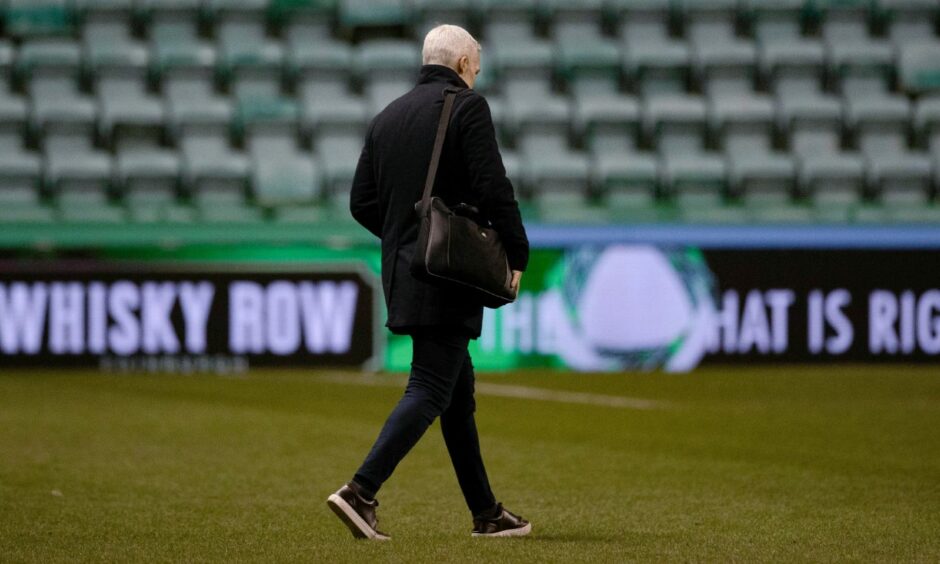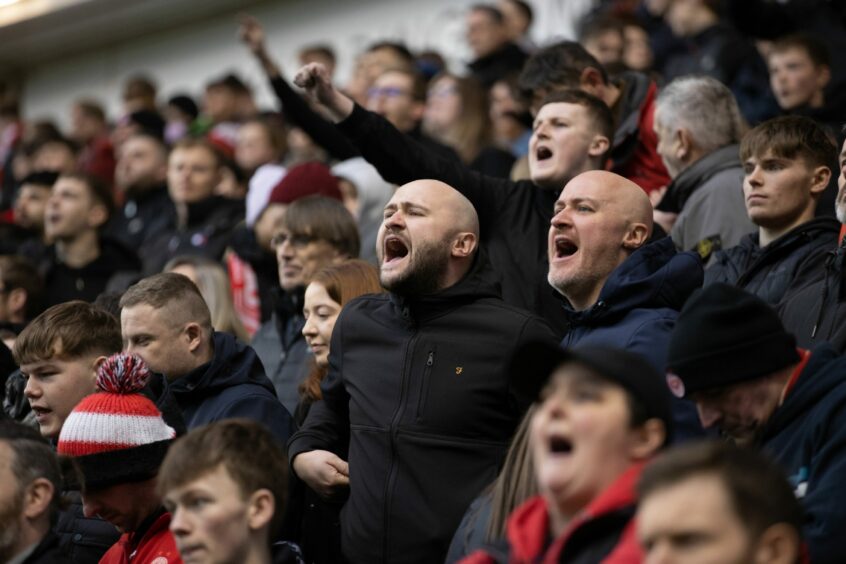Suspend disbelief and imagine that Jim Goodwin’s Aberdeen tenure will be remembered for anything besides the historically awful results which brought it to an end: it would be for its profligacy.
Walking into a disaster zone with free rein and a large kitty, it almost defies logic that he could leave it 12 months later scarcely in any better condition. Burning to the ground what he inherited was the easy bit; rebuilding it to an eerily similar blueprint was costly folly.
Recruitment ought to have been the most effective tool in Goodwin’s shed. With over £1.5m shelled out in transfer fees last summer, he was handsomely backed to restock a squad which, by application of that indiscriminate flamethrower, was unprecedentedly sparse.
Instead it contributed significantly to his downfall. Of the players engaged arguably only Duk truly proved worthy of the jersey, while stubborn loyalty to others – latterly at the expense of demonstrably better alternatives who predated Goodwin’s arrival – delivered ever diminishing returns.
It was plain early that Goodwin’s tack was to discard anything not identifiably his, and so has judgement upon him been mercifully swift.
Casting almost every cloot on the dressing room rail before May was oot – even those still eminently viable, and often seemingly just to make a point – ultimately served only to hasten the point at which it could be said with sufficient conviction that the regime was not adding value commensurate with its budget.
The question which now remains is how much of Aberdeen’s failures can be attributed to Goodwin’s ineffective use of the squad, and how much to its own basic capability. The club must hope the balance lies heavily toward the former – for many of those players, and much of the staff responsible for identifying and delivering them, are due to remain for the long haul.
A miserable day at Easter Road
There is one person to blame for this latest disaster to befall Aberdeen. For once, it was not Jim Goodwin.
Last week’s decision to effectively sack the manager without actually sacking him was, from a list longer than it ought to be, the worst taken on Aberdeen’s behalf by Dave Cormack.
Or at least by – wait for it – the “football monitoring board”, which, if it ever actually existed until its rounding up as a bat-cradling gang at Goodwin’s door, had heretofore been kept an understandably face-saving secret.
Saturday should not have happened because Goodwin should have been fired last Monday. But having retained his manager, it was an act of ridiculous self-harm for Cormack to ask him and his team to perform under public threat of immediate regime change, and it somehow managed to create a world worse than any which should have been possible, even in the grim circumstances of the day.
And so did they manufacture a situation resulting in the worst two-game league aggregate in club history, with a humiliating Scottish Cup defeat to non-league opponents sandwiched in between.
That it took the monitors just 19 minutes after Saturday’s final whistle to reach and reveal a unanimous termination decision shows it was signed off in advance, thus managing to be simultaneously eyecatchingly swift yet derelictly overdue.
Though it would have been justified had Goodwin been asked to leave the building at half-time along with the scores who had already monitored more than they could take, he was not the one who chose to participate in a desperate duel with a blank cartridge in the chamber.
The job done by the occupant of the manager’s office needs to be enormously better than of late, it is true. But it is not the only Pittodrie workspace to which that applies.



Conversation